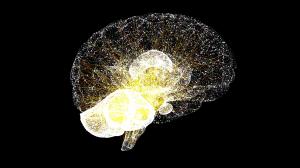Health Conditions Often Misinterpreted as Attention or Behavior Disorders
Thyroid dysfunction, sleep apnea, and other health problems can look very similar. Careful evaluation helps ensure the right condition is treated”
GULFPORT, LA, UNITED STATES, October 3, 2025 /EINPresswire.com/ -- Concerns about focus, attention, and behavior often lead individuals to seek evaluation for conditions such as Attention Deficit Disorder (ADD) or Attention Deficit Hyperactivity Disorder (ADHD). However, underlying medical issues—including thyroid disease, sleep disorders, and other metabolic conditions—may present with similar symptoms. Understanding these overlaps is critical for accurate diagnosis and effective care.— Dr. Stanford Owen
Dr. Stanford Owen, owner of ADD Clinics in Gulfport, Mississippi, emphasized the importance of thorough assessment.
“Not every attention or behavior issue stems from ADD or ADHD,” Owen said. “Thyroid dysfunction, sleep apnea, and other health problems can look very similar. Careful evaluation helps ensure the right condition is treated.”
Overlapping Symptoms
Many underlying health conditions can mimic the same difficulties with concentration, impulsivity, and energy regulation that are commonly associated with ADD/ADHD. For example:
Thyroid Disorders – Both hyperthyroidism and hypothyroidism can produce restlessness, poor concentration, or fatigue.
Sleep Apnea – Interrupted sleep cycles may result in daytime inattention, irritability, and reduced academic or workplace performance.
Metabolic and Nutritional Issues – Low blood sugar, vitamin deficiencies, or anemia can trigger difficulty focusing or mood swings.
Depression and Anxiety – These conditions may appear as restlessness, lack of focus, or difficulty following through on tasks.
The overlap of these symptoms underscores the need for a diagnostic process that goes beyond surface behaviors.
Sex Hormone Deficiency is also another overlooked condition in both sexes. Low estrogen and progesterone interfere with sleep and may have a direct influence on brain recovery. Testosterone in both sexes affects drive, motivation, libido and sleep.
The Role of Comprehensive Evaluation
Accurate diagnosis requires a layered approach. This may include:
Detailed medical history to identify chronic conditions.
Laboratory testing for thyroid function, blood sugar, or other relevant markers.
Sleep studies to detect apnea or other sleep disturbances.
Behavioral assessments that place observed symptoms in context.
Without this broader evaluation, individuals risk being misdiagnosed or receiving treatment that does not address the true underlying issue.
Thyroid Function and Behavior
Thyroid hormones play a significant role in regulating metabolism, energy, and mood. Both overactive and underactive thyroid conditions can resemble ADHD symptoms. Children or adults with hypothyroidism may appear sluggish, inattentive, or withdrawn, while hyperthyroidism may produce restlessness, difficulty sleeping, and distractibility.
In such cases, treating the thyroid condition often alleviates the attention-related challenges without the need for stimulant medications.
Sleep Disorders and Their Impact
Sleep apnea and related sleep disorders represent another major category of conditions that can be mistaken for behavioral problems. Poor sleep reduces memory consolidation and attention span while increasing irritability. In children, this can manifest as hyperactivity or disruptive behavior; in adults, as reduced workplace productivity and mood instability.
When sleep is restored through appropriate treatment, many of these cognitive and behavioral symptoms improve significantly.
Broader Health Considerations
Metabolic disorders, nutritional deficiencies, and certain medications can also interfere with concentration and self-regulation. For example, undiagnosed anemia may result in fatigue that looks like inattention. Even dehydration or chronic stress can reduce focus and mimic more complex neurological conditions.
This reinforces the value of ruling out medical contributors before settling on a behavioral diagnosis.
Risks of Misdiagnosis
Treating attention problems as ADD/ADHD without examining other health factors may lead to ineffective or even harmful outcomes. For instance, stimulant medications could worsen symptoms for an individual with untreated hyperthyroidism or significant anxiety.
Owen highlighted that comprehensive evaluation protects patients from these risks. “Attention challenges are real, but they aren’t always neurological. Sometimes they’re medical. Addressing the root cause ensures the best outcomes.”
Implications for Families and Schools
For children, the distinction between ADD/ADHD and other conditions is particularly important. Classroom behaviors such as fidgeting, poor attention span, or incomplete assignments may trigger a referral for ADHD testing. Yet these behaviors can also stem from lack of sleep, undiagnosed allergies, or even dietary issues.
Parents, educators, and healthcare providers all benefit from understanding that attention and behavior concerns are multifaceted. Collaborative assessment helps ensure the child receives appropriate support.
The Importance of Ongoing Monitoring
Even after a diagnosis is made, continued monitoring remains vital. Health conditions evolve, and new issues may arise over time. A child initially diagnosed with ADHD may later develop thyroid problems that complicate symptoms, or an adult with attention challenges may uncover a sleep disorder that had gone undetected.
Regular follow-up visits and open communication with healthcare providers allow treatment plans to adapt as new information comes to light.
Closing
Focus and behavior challenges often point to ADD or ADHD, but underlying medical conditions such as thyroid disease, sleep apnea, and metabolic imbalances can look nearly identical. Comprehensive evaluation—including medical testing, sleep assessments, and behavioral observation—is essential for accurate diagnosis.
As Owen noted, careful assessment leads to better outcomes: identifying whether the issue is neurological, medical, or a combination of both. In Gulfport and across the Gulf South, this approach ensures individuals receive the right care for the right reason.
Morgan Thomas
Rhino Digital, LLC
+1 504-875-5036
email us here
Visit us on social media:
Facebook
Legal Disclaimer:
EIN Presswire provides this news content "as is" without warranty of any kind. We do not accept any responsibility or liability for the accuracy, content, images, videos, licenses, completeness, legality, or reliability of the information contained in this article. If you have any complaints or copyright issues related to this article, kindly contact the author above.


